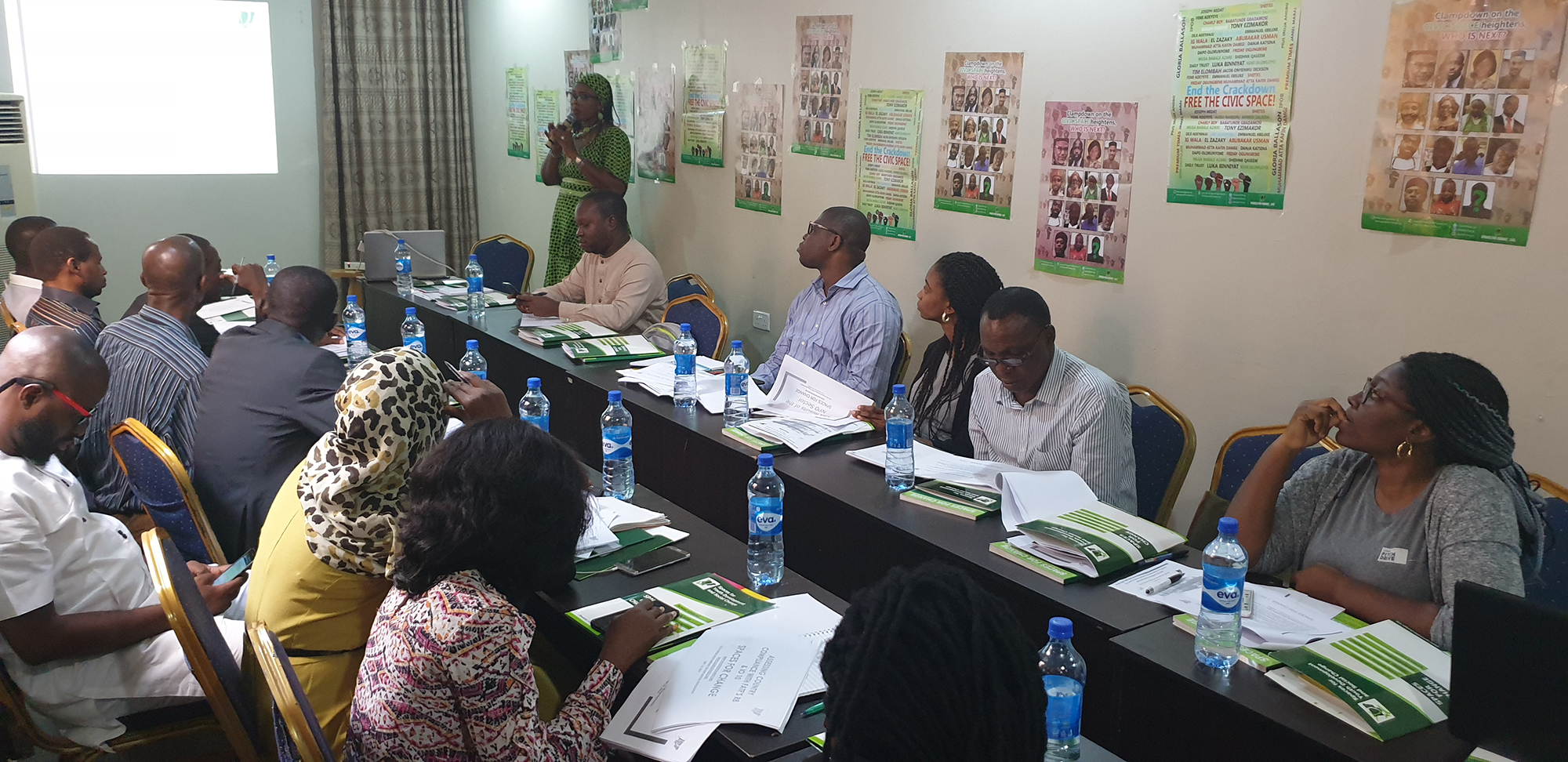This article was published more than 5 years ago.
This article is part of a series featuring inspiring stories of local action #fromthefrontlines of COVID-19 in the Global South. For more, visit our COVID-19 page and follow us on Facebook and Twitter.
As governments and institutions around the world impose strict emergency measures to contain COVID-19, local watchdogs and transparency advocates are preparing for a crisis of state accountability that they say could imperil activists’ ability to operate and threaten fundamental human rights.
In Nigeria, Fund-backed Spaces for Change (S4C), one of the country’s top civic space defenders, is leading a country-wide effort to monitor, document, and analyze the government’s response to the pandemic.
With more than 300 cases confirmed across twenty states and little capacity for widespread testing, the government of President Muhammadu Buhari has instituted a lockdown in key cities and states, shuttering schools and closing federal borders, except to essential services, under threat of penalties that include prison time, fines, and community service. Some governors have also imposed state-wide lockdowns and closed state borders to domestic travel.

While these preventative actions are an important part of the response to COVID-19, S4C is scrutinizing the government’s moves to ensure that restrictive emergency measures aren’t exploited.
Working with other members of the Action Group on Free Civic Space, a national network of civil society organizations, S4C has launched a series of new initiatives intended to curtail government repression and safeguard the work of human rights defenders during and after the pandemic.
A COVID-19 Tracking Team has been convened to monitor and map intrusive measures for an online database. Already, their efforts have exposed a range of human rights abuses. In Calabar, soldiers allegedly beat a taxi driver to death for carrying passengers that weren’t wearing masks and killed a gas station attendant in Abia. The governor of Ebonyi State, David Umahi, ordered security forces to shoot anyone escaping from isolation centers. And eyewitnesses report that police have used horsewhips and other weapons to enforce lockdown directives in Lagos and Abuja.
S4C is also engaging stakeholders, including donors, to inform domestic policy-making and international advocacy. The organization has launched a strategic communications campaign to share important health information and report abuses of power.
Their brief on COVID-19 and human rights garnered robust attention in national outlets and informed international reporting on the situation in Nigeria.
With labor guidelines and regulations changing under the extraordinary circumstances, S4C will be holding clinics to educate local civil society organizations about how to adhere to new and shifting laws and operating standards.
And, when possible, S4C is offering legal assistance to victims of abusive government actions. Along with four other members of the Action Group on Free Civic Space, S4C has launched a legal helpline to provide free services, including securing police bails, providing legal representation, and petitioning agencies and institutions responsible for addressing human rights violations.
When soldiers killed a man named Joseph Pessu in Delta State, S4C submitted a petition to the National Human Rights Commission requesting a thorough investigation. Within two days, the agency commenced an independent official inquiry, which is pending.
The egregious incidents S4C has documented are a harbinger of unwarranted violence and repression to come. As the tensions between preventative measures and fundamental freedoms become more pronounced, the work of local watchdogs like S4C is increasingly important.
To bolster their remarkable efforts, the Fund’s Enabling Environments Program has awarded its first COVID-19 emergency grant to S4C. The Fund is proud to support S4C as they continue to monitor government actions and advocate for proportional protective measures that respect human rights.


